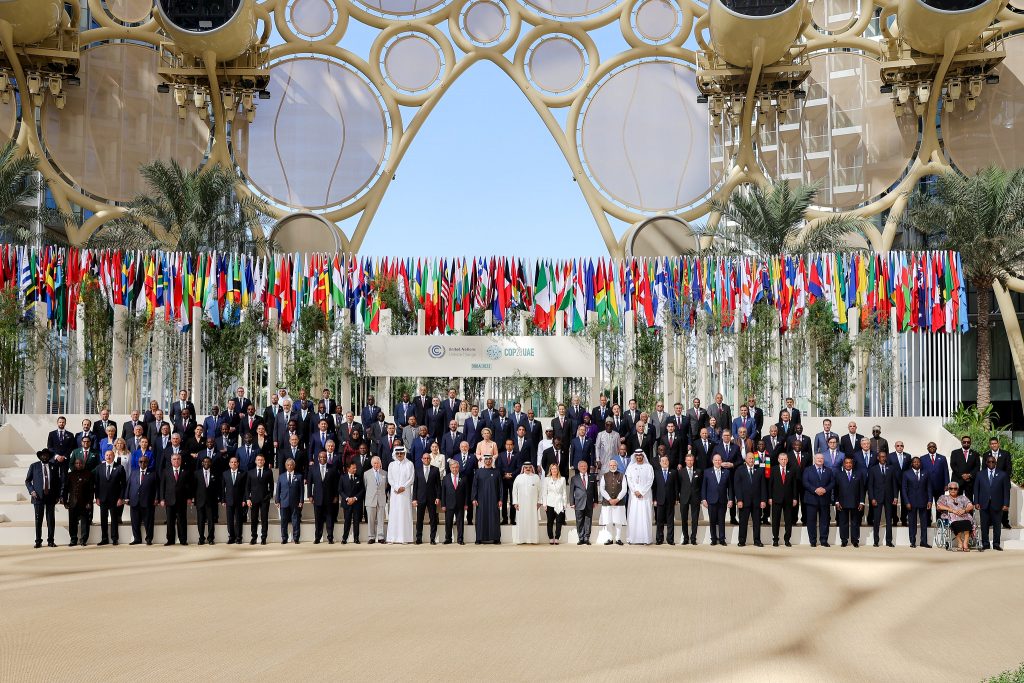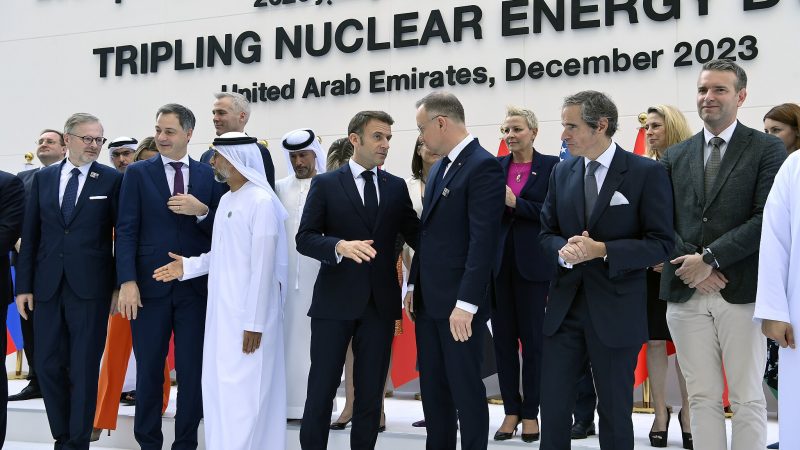The primary focus of the discussions in the 2023 United Nations Climate Change Conference (COP28) were the disparities in the views that different countries have towards phasing out fossil fuels. However, the agreement also placated Gulf states rich in oil by clearly approving the use of those fuels during the transition.
COP28 Was A Big Fat Lobbying Event
Nearly 200 nations came to an agreement at the end of the negotiations to “transition away from fossil fuels,” accelerating that shift before 2030. Almost every country delegated politicians to this year’s event, with an estimated 84 000 attendees (more than double the 38 457 attendees at COP26 in Glasgow, the previous record-holder). This record number was overshadowed by the controversy surrounding fossil fuels and what many perceive to be the UAE’s hypocritical role as a major oil producer hosting a climate conference. COP28 also welcomed oil executives and a large presence of private sector delegates, to the dismay of many attendees.
Shell, Chevron, TotalEnergies, and BP are the four largest oil and gas companies who were present with over 1 300 representatives.
An all-time high of 2 456 delegates from the oil and gas industry, 475 from the carbon capture and storage (CCS) industry, over 100 from the agribusiness sector, and numerous others from other industries made up the industry representatives in Dubai. Many will be content when they leave Dubai. The final text supported CCS, avoided discussing the part that beef companies played in the climate crisis, and put a temporary stop to discussions about regulating the carbon trading market.

Delegation leaders photographed at COP28 in the UAE in 2023 (Photo: Fotografía oficial de la Presidencia de Colombia / Flickr.com)
Politicians are Positive
The agreement, according to the Alliance of Small Island States, contains “a litany of loopholes” and only represents incremental change, which is insufficient to keep warming below 1.5 degrees Celsius. The Alliance represents those most vulnerable to sea level rise.
The nonbinding agreement was swiftly endorsed by major governments and UN summit leaders as a historic recognition of the urgency of the global transition to cleaner energy sources.
United Nations Secretary General Antonio Guterres said: “To those who opposed a clear reference to a phase-out of fossil fuels in the COP28 text, I want to say that a fossil fuel phase-out is inevitable whether they like it or not. Let’s hope it doesn’t come too late.”
According to Dan Jorgensen, the Danish Minister for Climate, “this is historic progress.” But he also admitted: “I can totally understand if our populations think that it’s a disgrace that it had to take 28 years”.
John Kerry summed up the results of the negotiations by saying that a swift transition to greener energy sources is required. “This document sends very strong messages to the world. This is much stronger and clearer as a call for halting global warming at 1.5 degrees Celsius than we have ever heard before,” the US climate envoy stated. Despite Mr. Kerry’s optimism, scientists estimate that global warming will shoot past that before the end of this century.
Reluctant Fossil Energy Producers
The European Union and the so-called small island states, whose physical survival depends on the use of fossil fuels, have pushed for an agreement that would completely ban fossil fuels by the middle of this century, unless they are connected to devices that can extract and sequester their harmful carbon. The United States, Australia, Canada, and Norway—all major producers of fossil fuels—later joined the chorus.
The outcome was a reflection of additional advancements in the fight against global warming. Wind and other clean energy technologies are getting more affordable. More than ever, nations were ready to commit to submitting new voluntary plans that covered every sector that emits greenhouse gases in greater detail and dug deep into their economies.
A commitment to double the pace of energy savings through efficiency measures by 2030 and triple the amount of renewable energy produced globally was also included in the final agreement.
Saudi Arabia, India, China, Nigeria, and other nations that view fossil fuels as a means of establishing or preserving their prosperity had put up strong opposition to the agreement. Getting them on board with the idea that some fossil fuels would be required as the world moved toward cleaner energy was crucial.
According to certain resource-rich nations, the transition away from fossil fuels must be accompanied by sufficient funding and resources so as not to impede their ability to develop and meet their expanding energy demands. These nations also pointed out that wealthy nations have a history of not living up to their financial promises to assist developing nations in developing clean energy infrastructure.
A Less Ambitious “Loss and Damage” Fund
However, the agreement did not bind countries to further aid, although it expressed “deep regret” that wealthy countries had not provided the promised $100 billion in annual climate finance by 2020. It also promises to promptly replenish the fund with cash ensued. By the end of the summit, nations had committed almost $800 million to the new fund, with the UAE and Germany announcing $100 million each.
The early agreement was welcomed by nations and activists, despite criticism directed at the United States for its meager $17.5 million pledge.
The initial commitments to the fund have reached $700 million, but the question of future financing remains uncertain.
Greenwashing at the Highest Level
Significant criticism was leveled at the “oil and gas decarbonization charter,” which required 50 oil and gas companies to commit to eradicate production-related greenhouse gas emissions by mid-century and methane leaks by 2030. Green organizations and vulnerable nations referred to it as greenwashing, as they argued that the COP28 presidency had deliberately launched the renewables and energy efficiency targets together with the oil and gas pledge.
Fossil energy use in the world today still accounts for over 80 percent of total energy consumption, meaning that it continues to drive the world economy.
In 2022 the International Monetary Fund estimated that fossil energy was worth 7.1 percent of the global GDP, the equivalent of $7 trillion. Moreover, for many countries, coal, natural gas and oil are the opportunity and the driver of development and they do not yet see realistic alternatives.
From this point of view, it is already not so trivial that getting rid of them has been declared.
“Only a radical reduction in inequality, transformative climate action and a fundamental shift in our economic goals as a society can save our planet while ensuring the well-being of all – we wrote in our coverage just before climate forum. None of these were implemented.







